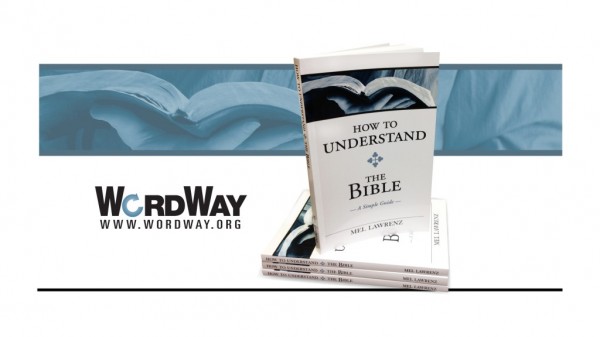I had left a large evangelistic rally in our city one day when I was 21 years old, and was surprised to see the speaker, Leighton Ford, walking across the parking lot where I happened to be. Seeing an opportunity talk to the great man, I introduced myself and told him that I was going to seminary the following year because I believed I was called to be a pastor. Ford stood several inches taller than me, and had piercing but kind eyes. I will never forget what happened next. He took his large black Bible and held it over the top of my head. That got my attention. He said, “Young man, when you’re in seminary you are going to be studying the Scriptures, but always remember this, you must never place yourself over Scripture, but you must increasingly place yourself under its truth and authority.” That thought and that image remained with me for the next three years, and many years of ministry afterward.
We do a lot of reading. We read news articles, editorials, stories, advice columns, blog posts, and tweets. Most of our non-fiction reading is in order to solve a problem. How to fix a toilet, what vitamins to take, what sights to see at a vacation destination, etc. We read to get information, and that puts us in a certain relationship with what we read. We evaluate it, deciding whether to believe it or not. We use the information for our practical needs. We use it, and then forget it, because there are limits to how much information we can remember.
Many people study the Bible exactly that way, looking for information, solving a problem, seeking a certain emotional effect. But if the very reason the Bible exists is because the Creator of the universe spoke through prophets and apostles to establish and deepen a relationship with him, then how we read Scripture must be different. We read it not merely for information, but for formation. We examine Scripture while it examines us.
Think about this for a moment: what have been the most formative spiritual experiences in your life? By formative I mean that they shaped you by opening your mind to a large truth, or by softening your heart, or by instilling values, or by confronting your sin. Reading Scripture ought to be one of those experiences. We may not be aware of it every day, but over a long period of time we are formed and transformed by the truth of God.
This will not happen if we stand over the Bible.
In his book, Shaped by the Word, Robert Mulholland describes formational reading in these ways:Formational reading is not concerned with quantity.
- Informational reading is linear; formational reading is in depth.
- Informational reading’s task is to master the text; formational reading’s purpose is for the text to master you.
- With formational reading “instead of the text being an object we control… the text becomes the subject of the reading relationship; we are the object that is shaped by the text.”
- “Instead of the analytical, critical, judgmental approach of informational reading, formational reading requires a humble, detached, willing, loving approach.”
- Informational reading is problem solving; formational reading is openness to mystery.
The 18th century scholar Johann Albrecht Bengel put it this way: “Apply yourself wholly to the text; apply the text wholly to yourself.”
It is easy for us to give a head nod to this idea, to think that we know about letting Scripture shape us. But this requires diligence. In the busyness of life we may read Scripture quickly and superficially. We may read with the attitude, what’s in it for me? Worst of all, we sometimes read in order to feel righteous.
This is why prayer must go hand in hand with studying Scripture. We talk to God, then God talks to us, then we talk to God again. And so it goes. Along the way we use Bible study techniques (which we’ll get to in detail in this series), but the attitude must be consistent. Whether we are studying a biblical character or an era of history or the background of a particular book or a theological truth, it is always about knowing God and letting his word examine us.
James puts it well when he says:
“Do not merely listen to the word, and so deceive yourselves. Do what it says. Anyone who listens to the word but does not do what it says is like someone who looks at his face in a mirror and, after looking at himself, goes away and immediately forgets what he looks like. But whoever looks intently into the perfect law that gives freedom, and continues in it—not forgetting what they have heard, but doing it—they will be blessed in what they do.” (James 1:22-25)
May we not forget.
__________________
For background on “How to Study the Bible” see How to Understand the Bible by Mel Lawrenz.

I had asked to join the series “How to Study the Bible”, but somehow did not get there… Had car accident and lost my husbane in the past two . Is it too late for me to join the class. If not, what ‘s my next step? Thank you.